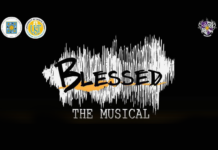TELLING a story vividly is one thing, and writing in verses is another. Yet once in a while, a person comes along who manages to weave both into his writing, and seems to make it look effortless.
In his debut collection, Chiaroscuro (UST Publishing House, 2008), poet Joel Toledo takes his readers on a tour of life—from the forces of nature to the complexities of human existence. The collection’s second and third sections, “What Little I Know of Luminosity” and “Literature and Other Poems,” won him first and second prizes in the Palanca awards for Poetry in English in 2005 and 2004, respectively. He also won second prize in the 2006 Bridport Prize, a British award.
With a knack for imagery and a keen attention to detail, Toledo writes poems that offer more than just a cursory look at people; he also writes stories about the neglected and the mundane. Toledo has the ability to set and examine a speck in a larger tableau and give it an identity of its own. In “Open Sesame,” the first poem in the collection, he sees further into the Ali Baba phrase and relates it to the minute spaces of nature. With its lines hitting home (“And let me tell you now//why wings and doors and flowers really open, why/this wall, once non-negotiable, had let you in.//It is because all things want to open, that often/all you need to do is ask.”), the magical phrase is given a whole new meaning.
Toledo saves his best lines for last. Most of the time his most memorable images are at the end. In “Brook,” he writes, “Return is the tragedy of time,/rotting the spoiled spaces, inconsolable by presence./We handle grief by moving. Distance makes it intense.”
The strong endings of his poems save some of Toledo’s creations from being forgotten. In the last poem, “Moths,” where he talks about the death of a grandmother, there are too many details that seem to go nowhere. Toledo renders beautifully, but this flood of details befuddles the reader. “Moths” seems to be a blur until the last line is read: “And then there it is. I am talking about/something really heartbreaking.”
Also, Toledo’s penchant for vivid descriptions and stringing words together makes some of his poems vague. “Fever” and “Evening” are examples of this, where Toledo seems to talk about something probably written for a select cabal of cognoscenti.
But there is no denying that Toledo is outstanding. With its fitting title, Chiaroscuro reveals light and shadow—both the good and the bad sides of life.
The collection speaks of tragedies, blessings, and ironies surrounding the mystery of being. Toledo does not only tell of light and shadow. With his eye for detail, he magnifies the smallest of things and helps them tell their stories.













